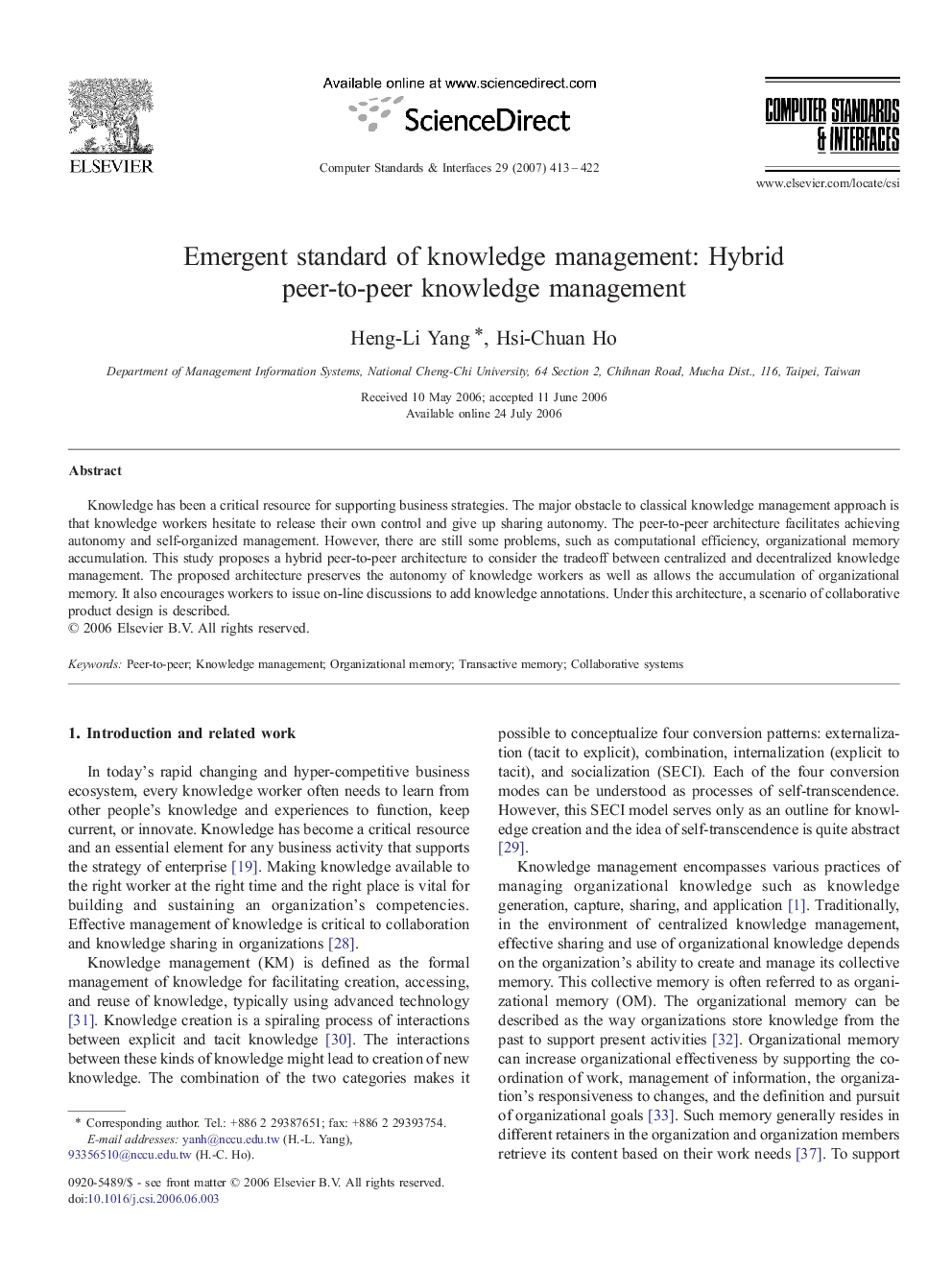| Article ID | Journal | Published Year | Pages | File Type |
|---|---|---|---|---|
| 455260 | Computer Standards & Interfaces | 2007 | 10 Pages |
Knowledge has been a critical resource for supporting business strategies. The major obstacle to classical knowledge management approach is that knowledge workers hesitate to release their own control and give up sharing autonomy. The peer-to-peer architecture facilitates achieving autonomy and self-organized management. However, there are still some problems, such as computational efficiency, organizational memory accumulation. This study proposes a hybrid peer-to-peer architecture to consider the tradeoff between centralized and decentralized knowledge management. The proposed architecture preserves the autonomy of knowledge workers as well as allows the accumulation of organizational memory. It also encourages workers to issue on-line discussions to add knowledge annotations. Under this architecture, a scenario of collaborative product design is described.
